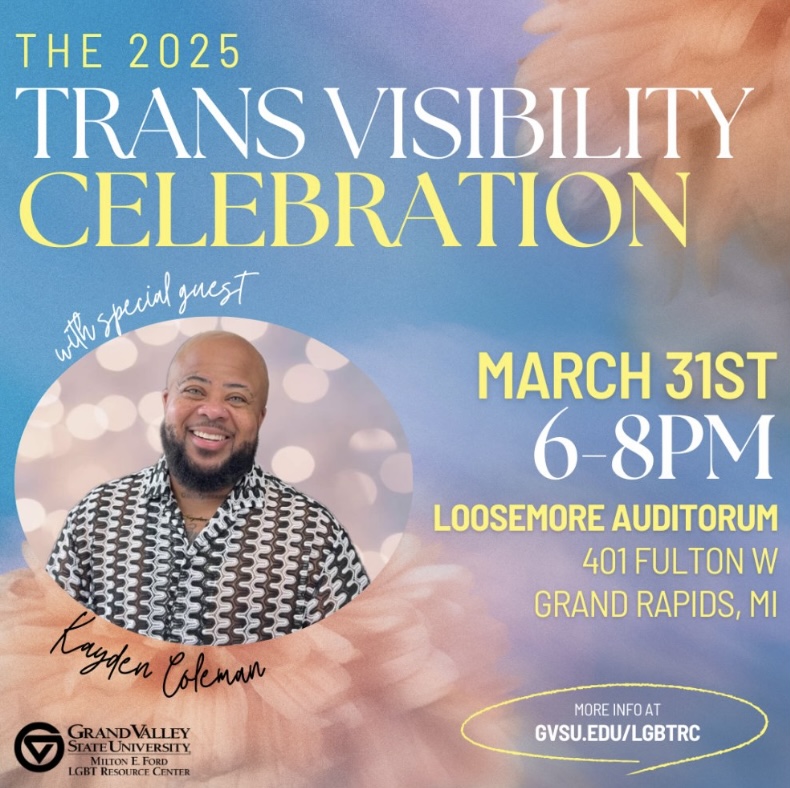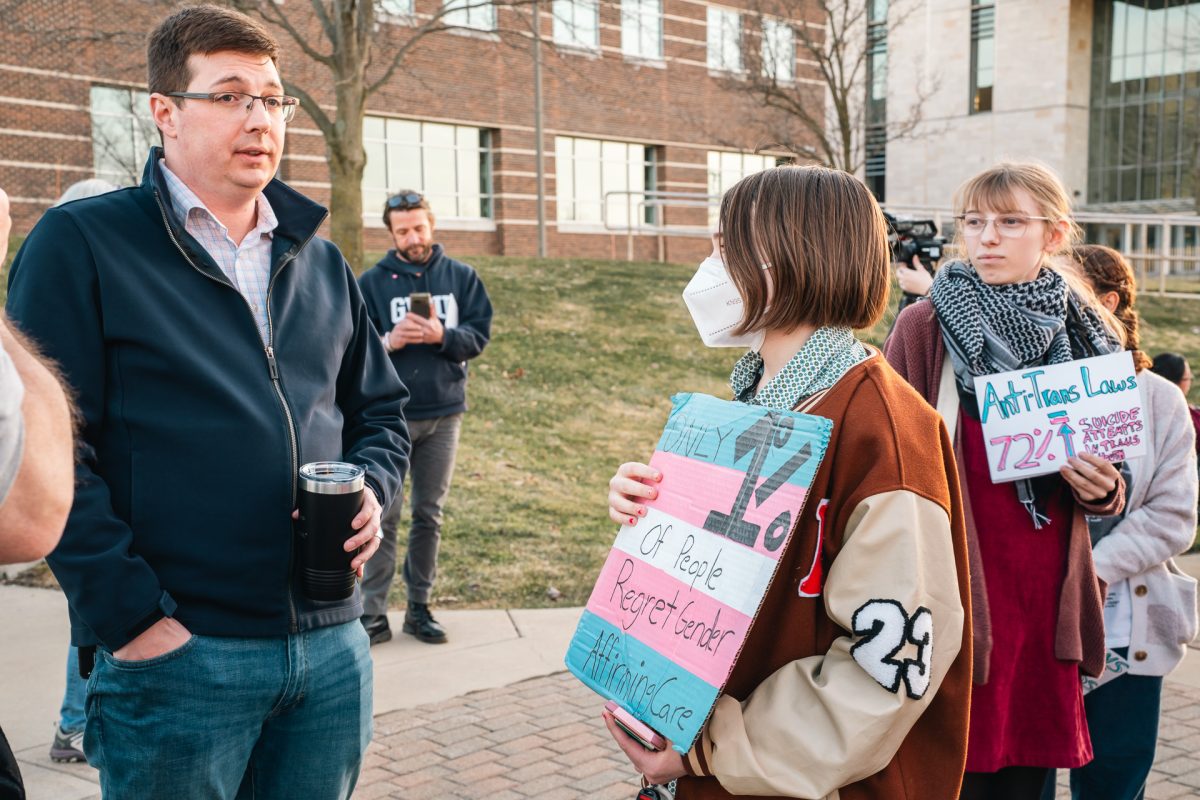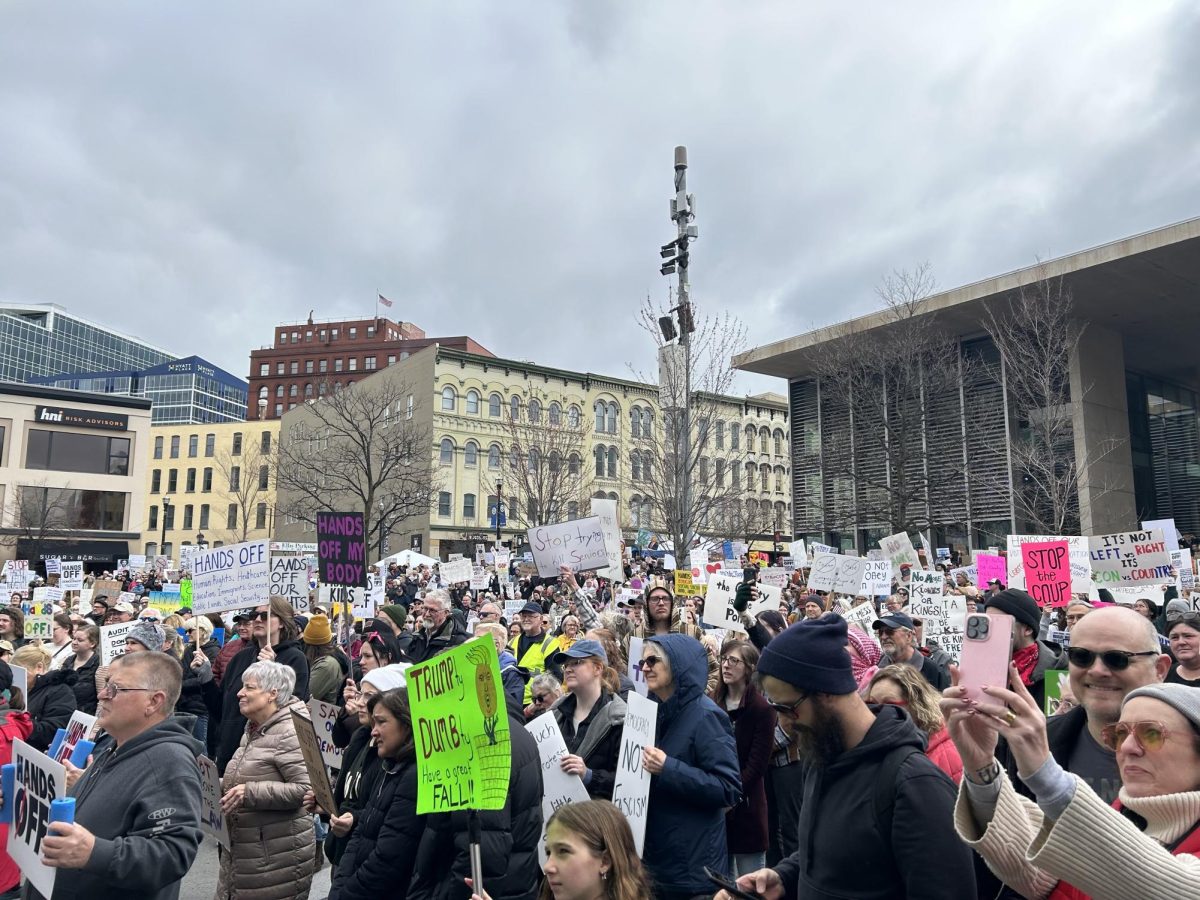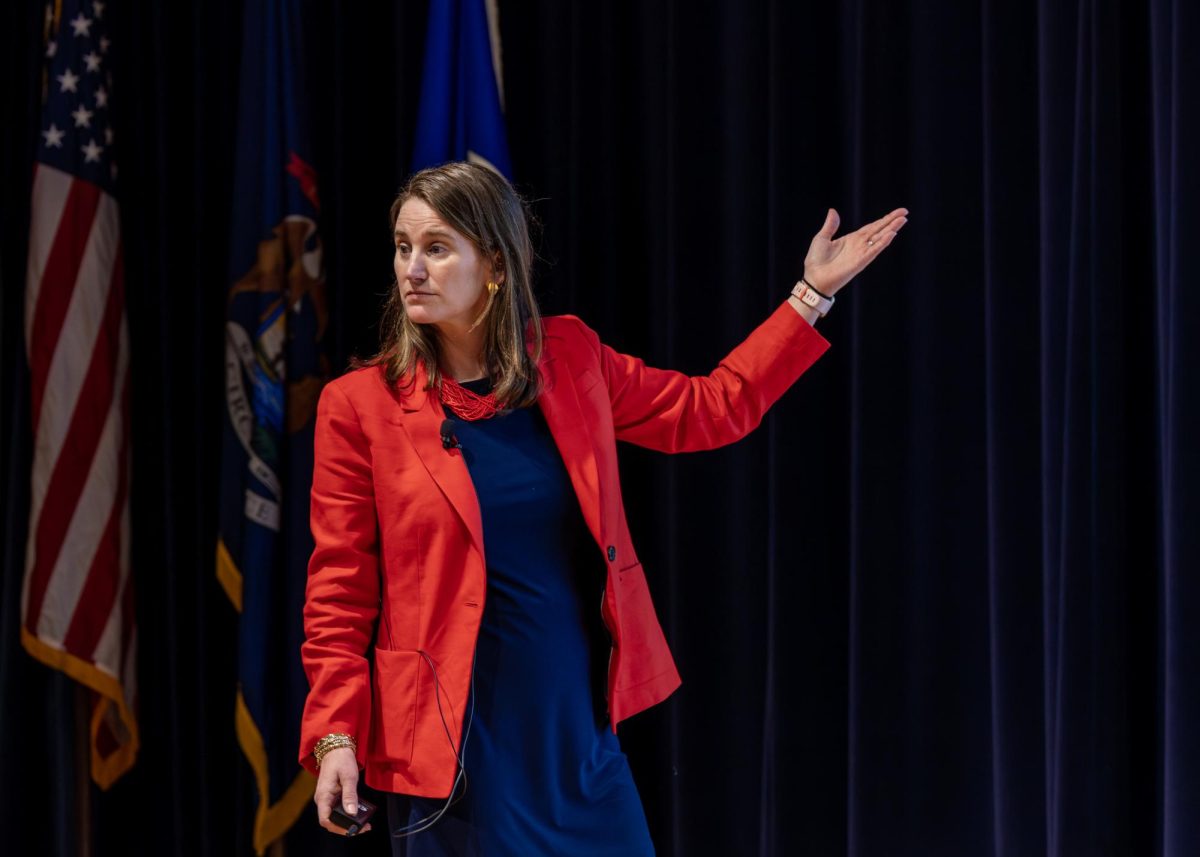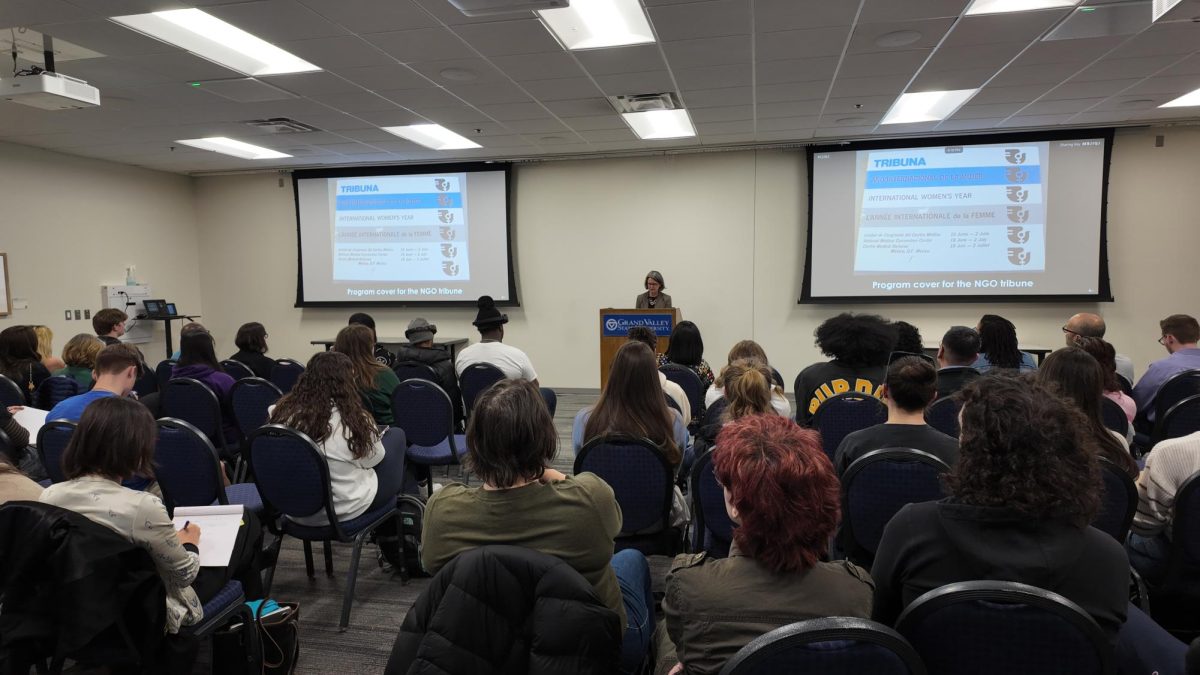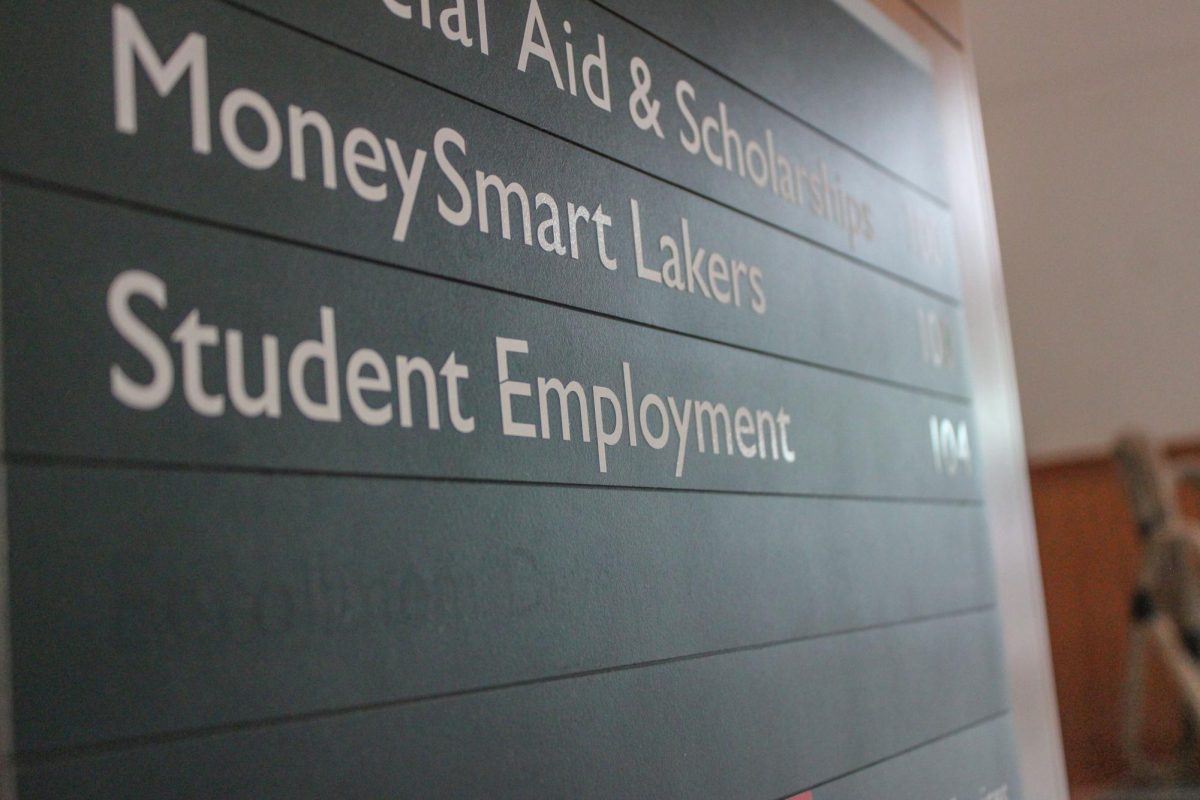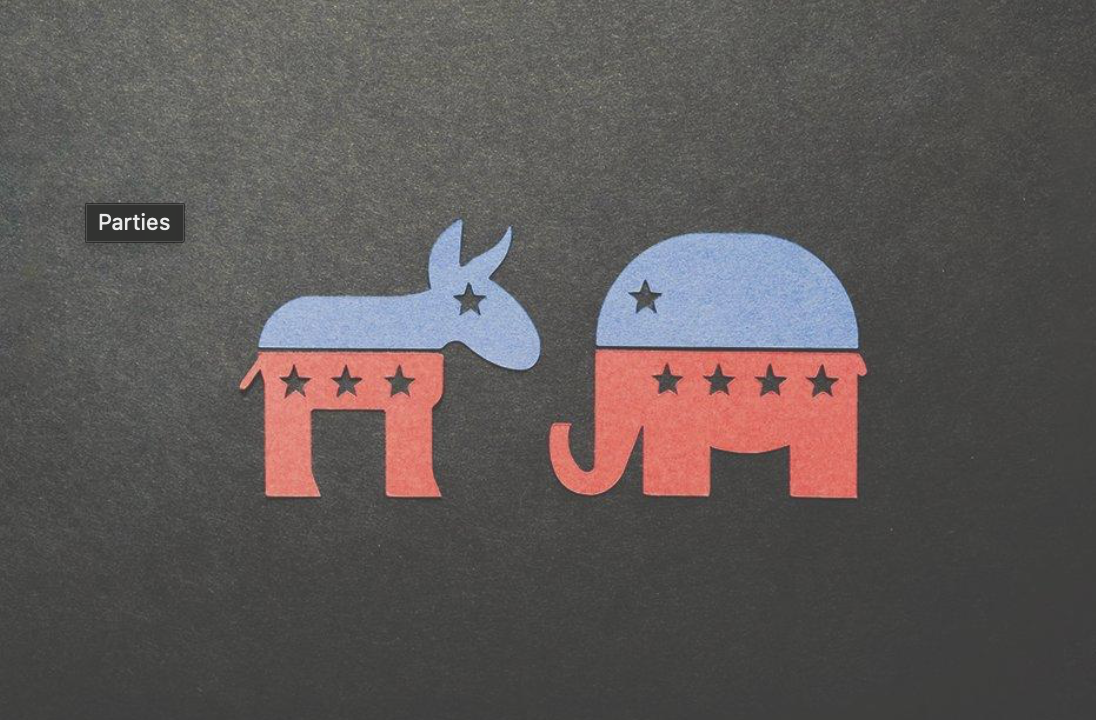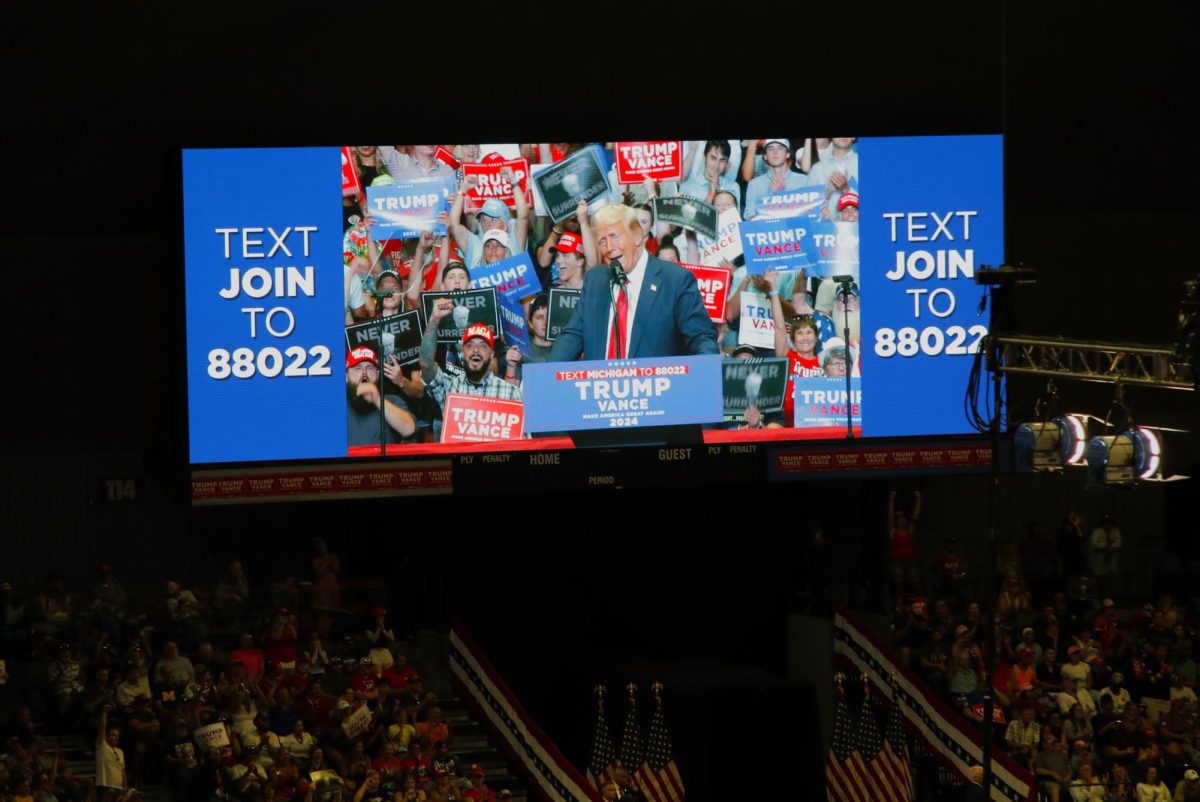Former President Donald Trump is slated to return to the Oval Office in what many are recognizing as one of the greatest political comebacks in history. Trump’s victory over Vice President Kamala Harris in the presidential race has roused public opinion at Grand Valley State University and across the nation.
Although the winner of the presidential race wasn’t announced until the early morning hours of Wednesday, Nov. 6, it was clear hours before that a “red wave” was breaking on the shores of the U.S. political landscape. Trump’s victory came through 312 electoral votes as compared to Harris’ 226. 270 is the number of votes from the electoral college needed to win the presidency.
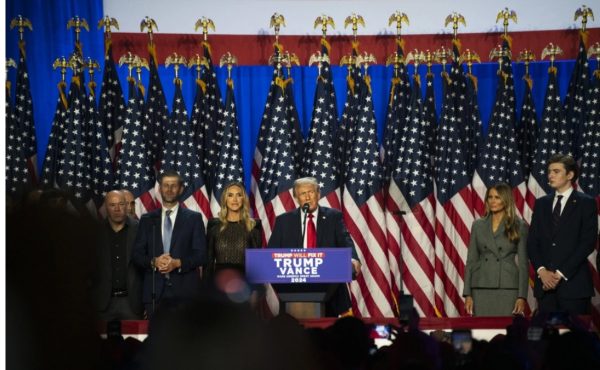
Trump also won the popular vote, a feat that hasn’t been accomplished by a Republican since former President George W. Bush in 2004. Trump was able to win the national tally by garnering a lead of almost 4 million votes.
All seven of the battleground swing states went to Trump, who took back Michigan, Wisconsin and even Pennsylvania from the Democratic Party. These are states that had previously turned blue in the 2020 election. Harris spent a protracted period of her campaign in the state of Pennsylvania to rally support, knowing it would be vital in winning the presidential race. Yet, she lost the state by about 150,000 votes.
The “red wave” of Republican support has won the party more than just the presidency. Republicans also now have the majority in the U.S. Senate, and are well on their way to achieving the same victory in the House of Representatives– a race that’s inching towards finalization.
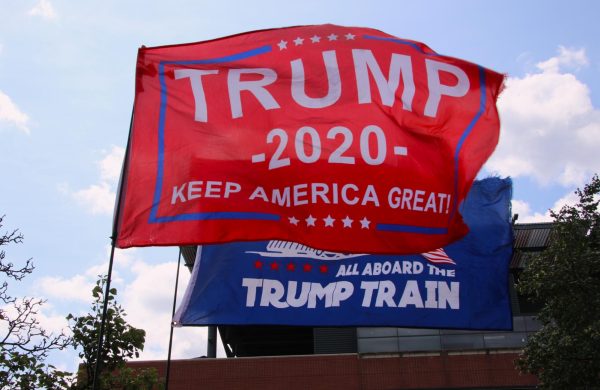
This definitive defeat comes as a surprise for Democratic Party leadership, who are “depressed and demoralized” about the results, according to The New York Times.
This election season was fraught with challenges for Democrats. President Joe Biden bowed out of the presidential race very late in the season, which allowed Harris only 100 days to campaign. Harris underperformed Biden in many states that have been considered vital to the Democratic Party.
One such strata that Harris may have underperformed in was the student voting block. Michigan State University reported that student participation for Harris at MSU fell below the numbers of her predecessor in 2020.
Still, many students at GVSU announced they were proud to vote for Harris this election.
GVSU student Nikolas Tompkins was one such individual. He said his frustration with election results stem from what he sees as a bleak outlook for Trump’s presidency.
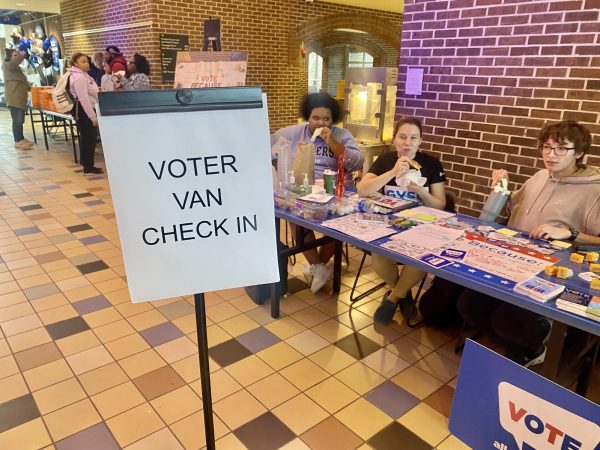
“I wasn’t surprised, but I was disappointed,” Tompkins said. “I’m not optimistic for America over the next four years under Trump, especially if the House remains in a Republican majority.”
Tompkins bases his lack of optimism on what many consider to be “outrageous rhetoric” from the president-elect.
”The return of Trump has already created an even larger divide in the country,” Tompkins said. “In online spaces, we are already seeing a further divide.”
Even more unsavory, perhaps, is the perception of Trump’s discrimination against marginalized groups. Tompkins sees the reelection of Trump as a moral issue– one that may negatively affect specific groups in American society.
“I am also extremely scared for many minority groups across the country, especially LGBTQ+ and Hispanic groups,” Tompkins said. “I worry for their safety under Project 2025 and a highly conservative government.”
Other students seemed genuinely surprised at Trump’s victory, especially being he was out of office for the last four years. Noah MacLachlan, a double major in writing and philosophy at GVSU, said he was not expecting Trump to win.
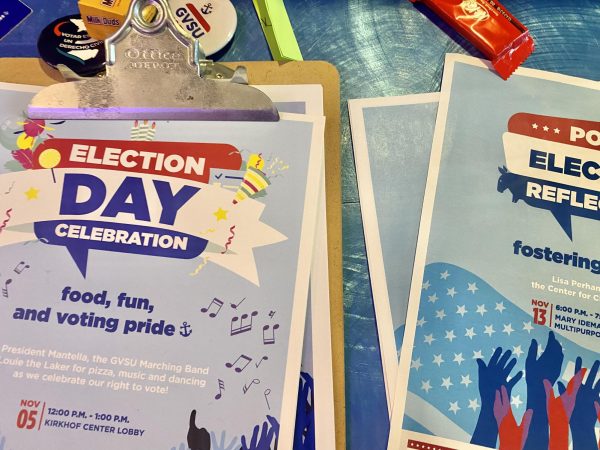
“Honestly, I was pretty surprised with the reelection of Donald Trump,” MacLachlan said. “At a base level, he is an actual felon, and I would have thought that would be enough for some people to not vote for him. But, I guess I overestimated how much of an impact that would be on people’s opinions.”
Samuel VanSlooten, a writing major at GVSU, views the victory as a shift in the country’s political climate.
“With the large amount of controversy surrounding him, it is certainly surprising to see that he won, and by winning the popular vote,” VanSlooten said. “Something I find significant is that a Republican candidate hasn’t won the popular (vote) for the last four elections. I believe this is an indicator of a cultural shift, as we did not see these numbers in previous elections for Donald Trump.”
VanSlooten, like Tompkins, said he recognizes the destructive potential of the impending Trump presidency.
“To a degree, he is certainly a figure that many have drawn connections with authoritarian rule and fascism, and ultimately his actions will determine how divided we will become over his presidency,” VanSlooten said. “A big part of Donald Trump’s campaign is based on the idea of unifying the country, and it’s likely he is going to focus on trying to legitimize his position moving forward.”
Yet, VanSlooten remains steadfast in his hopes for America.

“I am optimistic out of necessity,” VanSlooten said. “We are living in a time where people demonize each other, and it’s important to try to work together, regardless of who is in office. I believe the strength of America has always been its people, and that we are capable of great things when we see each other as more alike than different.”
So far, it’s unclear what exactly Trump’s “new America” will look like. He has campaigned heavily on issues like closing the Mexico-United States border and fixing the economy, but the country will have to wait until well beyond January 2025 to see if Trump’s plans become fully realized.
“We are going to be seeing increased spending on the infrastructure of the border, as well as the spending for guards and military presence,” VanSlooten said. “I also think the economy may improve in the sense (that) we are exporting and producing more, but I am skeptical if these new profits will help the people who truly need it.”
Considering the boarder, Tompkins was also skeptical about Trump’s plans for the economy and his focus on ridding the country of undocumented immigrants.
“I’ll start by saying that I think Trump’s border plan will be catastrophic for the economy,” Tompkins said. “Undocumented immigrants alone contributed 96 billion dollars last year towards programs like Social Security and Medicare. They also make up more than 30% of all construction, manufacturing and labor jobs in the country. A mass deportation effort as Trump and his administration have proposed will have major ramifications on American infrastructure for years to come.”
Like other students, MacLachlan shares a fear that Trump’s presidency could trample on the rights of others.
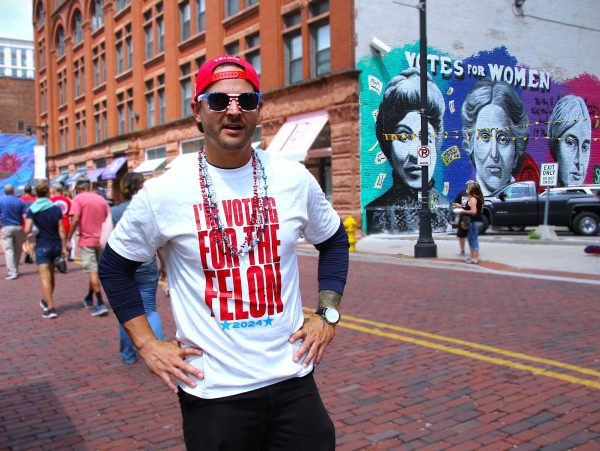
“While the future seems to be quite scary for marginalized communities, I truly do hope that America won’t get worse for (marginalized groups of) people,” MacLachlan said. “I hope at least some good economic changes will go into place (and) extremist agendas won’t be passed, but it’s still scary nevertheless.”
MacLachlan remains optimistic about Trump’s desire to reset the economy.
“I think Trump has potential to make for a somewhat better economy, though I’m not knowledgeable enough on economics to guarantee that it’ll become drastically better or worse,” MacLachlan said.
Professors in GVSU’s Political Science Department say that Trump’s win was not altogether surprising to them. However, they believe his presidency could set new precedents in the country for more than just policy.
Donald Zinman, a political science professor at GVSU, said he wasn’t shocked by Trump’s victory, as the president-elect has been an anomaly of sorts in American politics for some time now.
“He has a persistent ability to outperform the polls,” Zinman said. “Over nine years, Trump has pretty much eroded any sense of shock value (of) his outrageous personal behavior and dishonesty.”
Zinman described Trump’s classification as a convicted felon as a possible growing trend in the future of U.S. politics.
“That may encourage more candidates who are convicted felons to run for down-ballot offices in the future,” he said. “Hopefully Trump can now be convinced to support national legislation that outlaws having to check off the box in job applications that asks if you have ever been convicted of a felony.”
As far as the red wave goes, Zinman said Trump may face little to no opposition in selecting his chosen cabinet.
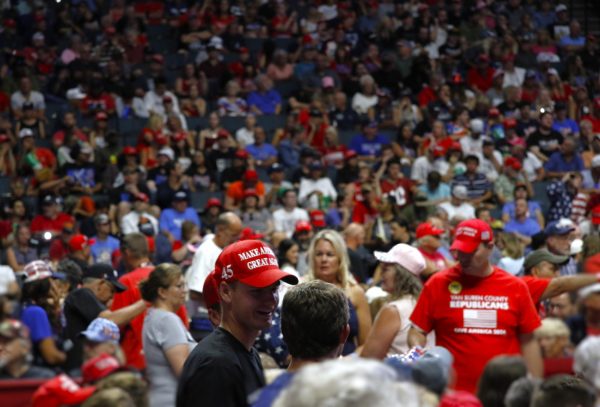
“He will likely get his Cabinet through the Senate, although there may be some drama at the confirmation hearings,” Zinman said. “His legislative program will be curtailed by the Senate filibuster and a very razor thin majority in the House, but with party discipline, he may be able to get some tax and budget policies through by way of the Reconciliation process.”
Laura Schneider, a political science professor at GVSU and the Department’s internship coordinator, echoed Zinman’s claims wholeheartedly.
“Cabinet choices will likely go through,” Schneider said. “Republicans have the majority in the Senate and it only requires a majority vote for approval. So, if the party falls in line, there shouldn’t be any issues. We are still waiting on the House majority, so time will tell.”
Even if Trump’s platform becomes fulfilled, Schneider also recognizes the significance of his election from a historical perspective. Trump is only the second president to win a non-consecutive term in this office– the first since former President Grover Cleveland in 1892.
“Grover Cleveland is the only other president to be voted out of office only to win again in another election,” Schneider said. “It is also historic given Trump’s own history. He is the only convicted felon to be elected president of the United States. He also takes the prize of being the oldest president in history, replacing Joe Biden.”
Since Trump has big plans for long-term change and is tied to his final term as president, many people are questioning the future of the Republican Party.
Zinman, for his part, is unsure of who the new face of the Republican Party will be, but doesn’t put it past Trump to circumvent term limits altogether.
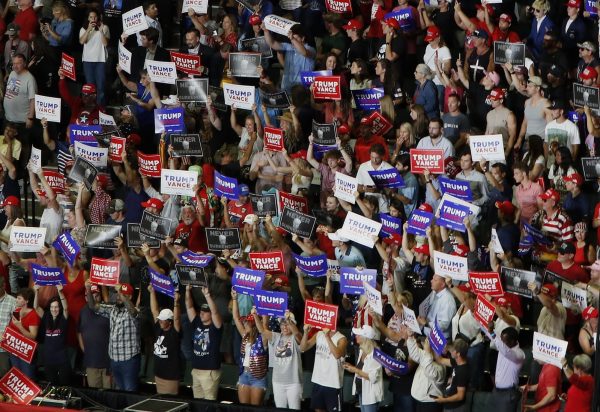
“That person (to head the Republican Party after Trump) or (people) will emerge, but not right away,” Zinman said. “Losing elections is hard, but the soul-searching, rebuilding and housecleaning (are) necessary in order to get back to a place where victory can be achieved. Vance will be the early favorite for 2028, unless Trump decides to ignore the Constitution and simply run for a third term.”
Regardless of this year’s election results, Schneider is still a firm believer in the agency of individual voters.
“If you’ve taken my class, you’ve heard this before. Regardless of your political party, if you don’t like the candidates, get out and vote in primaries where the November slate of candidates is selected,” Schneider said. “The political landscape in the U.S. has shifted much farther to the right.”
Many have also expressed concern regarding international politics with Trump back in office. The country has seen a Trump presidency before, so most are familiar with how he operates on the international stage. He will certainly have to address the humanitarian crisis in Gaza and the Russia-Ukraine war head-on.
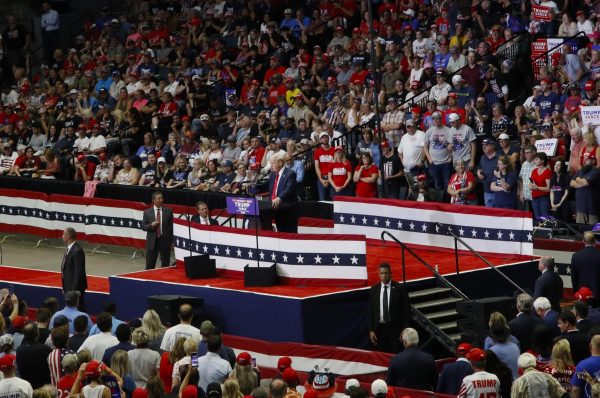
Robert Kumpf, a GVSU political science professor specializing in international politics, noted that the election of Trump will impact American foreign involvement in a variety of ways.
“President Trump has long been a proponent of “America First,” which has come to represent a disconnect from American involvement in global affairs that do not directly impact American interests, as defined by Trump’s advisors,” Kumpf said. “In respect to Ukraine, we may see a slowing of American support and funding in that region.”
In regard to the Middle East, Kumpf is interested to see what Trump will do moving forward.
“American presidents have tried to manage this region, and nearly all of them have been relatively unsuccessful,” Kumpf said. “(Some) groups came out in support of the Trump candidacy out of anger toward the Biden administration’s support of Israel, but I’m not confident that President Trump will fare much better in his attempt to bring (it) under control.”
Kumpf seems to be more of a realist when it comes to the practical nature of Trump’s promise to end various international wars.
“Saying you will ‘end’ wars as a candidate is one thing, but actually ‘ending’ war once you’re in office is an entirely different thing,” Kumpf said. “Peace is not easily attainable in any conflict, but especially those seen as existential.”
While Trump himself has touted his acumen in international politics, Kumpf is less than certain about these claims.

“There are certainly countries that preferred Trump becoming president versus Harris, and leaders of some of these countries have stated as much publicly,” Kumpf said. “It is not unusual for foreign governments to have a preferred candidate in American elections, just as it is not unusual for the U.S. government to have a preferred candidate in foreign elections. The question we should be asking ourselves is why some of those countries preferred a Trump administration over a potential Harris administration.”
The answers may remain obscure until 2025 when Trump will take office. Kumpf said that at this point in time, this is a down-the-road concern.
“The president this week is Joe Biden and the election didn’t change that, but the inauguration in January certainly will,” Kumpf said. “I believe that policy change should occur after reviewing data provided by subject matter experts, and very careful consideration of the potential impact of any policy shift. Politicians, especially here in the United States, have a habit of changing policy just for the sake of throwing out anything connected to their predecessor versus examining the long-term potential.”
Kumpf noted that the US holds a great responsibility as a world leader in intentional politics and support for other nations. While he hopes the results of Trump’s administration will be positive ones, he does not discount the possibility of a more ominous world revealing itself in the wake of the 47th President’s reelection.
“The incoming Trump administration will be faced with multiple, critical foreign policy decisions immediately upon taking office, all of which have the potential to bring great success or great harm to millions of people around the globe,” Kumpf said.






